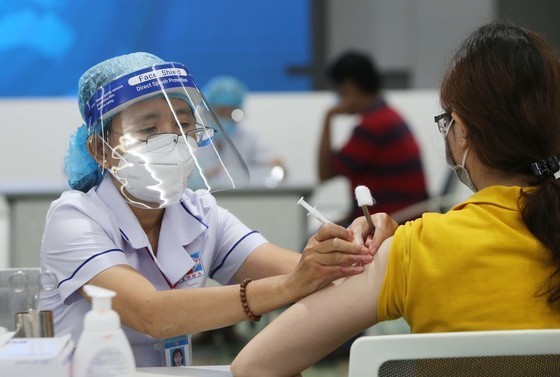 |
Vietnam is prepared for declaration of end to the Covid-19 epidemic |
The Ministry was urged to prepare a dossier for the downgrading of Covid-19 from its current placement in Class A infectious diseases to Class B. Up to now, from practical experience through anti-epidemic waves, Vietnam can announce the end of the Covid-19 epidemic because it has met all the conditions.
Firstly, cases of severe Covid-19 illness plunged to their lowest in Vietnam. Some people positive for Covid-19 died of severe underlying diseases. This shows that Covid-19 is still contagious in the community but no longer poses a danger to people's lives or poses a risk of causing high mortality.
Secondly, the Southeast Asian country has achieved high vaccination coverage rates with the administration of more than 266 million doses of the Covid-19 vaccine. All people from 12 years old are vaccinated with two vaccine shots. The rate of third vaccine shots for people from 18 years old reached 81 percent while 89 percent of people from 18 years old with high risk got fourth vaccine shots. Moreover, 69 percent of children from 12 to under 18 years old received the third vaccine dose.
Thirdly, the situation of the Covid-19 epidemic in the world has stabilized.
In early May, the World Health Organization declared the Covid-19 pandemic no longer a global health emergency.
Thus, Vietnam can downgrade Covid-19 from the Class A infectious disease to the Class B. Infectious diseases in Class A are particularly dangerous ones with high transmission and mortality rates.
On the other hand, diseases in the Class B are dangerous infectious diseases that can be transmitted quickly and can cause death. When Covid-19 is no longer a group A infectious disease, it can be treated like other medical conditions, and the payment for treatment is the same as for other specialized diseases or hospital fees will be covered by health insurance or patients will pay for medical services.
When the pandemic occurred, the government decided to establish the Covid-19 Patient Treatment Hospital under the Hanoi Medical University Hospital in Hanoi’s Hoang Mai District to provide treatment to patients in Hanoi and some northern provinces and cities. The special hospital at the Hoang Mai campus was built on an empty lot with 500 hospital beds.
The Prime Minister directly mobilized businesses to finance the construction of the hospital which was put into operation one month later. Thousands of severe and critical Covid-19 patients were treated in the hospital and they were discharged from the hospital in relatives’ happiness.
The machinery of the state system and Vietnamese people took part in the fight against the Covid-19 pandemic, but the country still experienced painful lessons. Therefore, it is necessary to urgently prepare necessary facilities, legal documents, and guiding procedures to better respond to other types of epidemics and a possible reoccurrence of Covid-19.
The National Assembly's supervisory delegation has proposed that the Ministry of Health should soon issue documents guiding the use of medical supplies and equipment that have been prepared to fight the epidemic and switch to routine medical examination and treatment. The Ministry of Health should assign local hospitals to decide on the use to avoid wasting medical equipment.
























